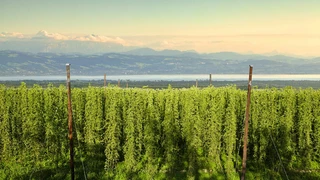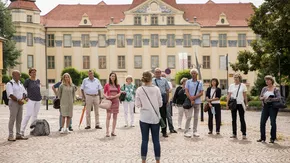HOPFENGUT No20 from hops to beer – the world of hops HOPFENGUT No20 in Tettnang combines hop production, a brewery, a museum, a shop and a restaurant; Here, the fourth generation of the Locher family produces the finest aroma hops for breweries around the world and transforms them into high-quality beer specialities. Whether you are tasting the beer, visiting the museum, checking out the shop making the most of a convivial end to the day in our restaurant, enjoy a fascinating journey into the world of hops.

Recommended seasons
January–April + 21st October–December
Thu–Sun
May–20th October
Tue–Sun
Museum + shop 10:30 am–5 pm
Restaurant 11:30 am–6 pm
Informations about the opening hours can be found here.
6.00 €
Seniors, Students 5.-€
One-time free admission with the Bodensee Card PLUS
We recommend that our guests make a table reservation, as well as a telephone or written booking of a time slot by e-mail for the museum.
Kids3.00 €
Family card (2 Adults, Kids till 15 Years) 15.-€
Group entry (as of 15 Persons) 5.-€ p. P.
Hopfengut N°20
Hopfengut 20
88069 Tettnang
Germany
mail@hopfengut.de
hopfengut.de
Show in Google Maps










